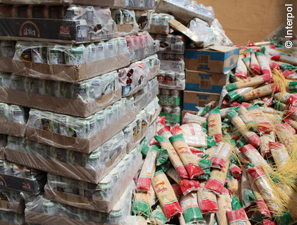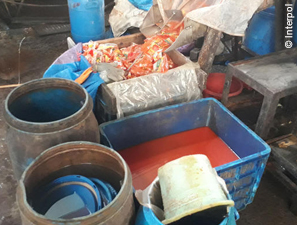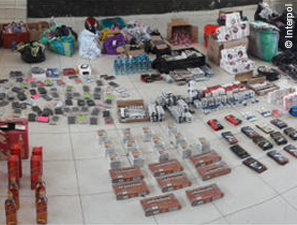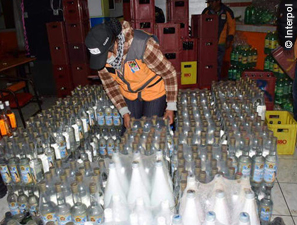Under the code name Opson VI, law enforcement authorities from 61 countries* took part in a large-scale campaign against illicit and counterfeit foods which started in the beginning of December 2016 and lasted until the end of March 2017. During the operation, which was spearheaded by Interpol and Europol, approximately 9,800 tons of counterfeit food products were seized, coming close to the record level of the previous year’s operation Opson V (we reported). In stark contrast, there was a dramatic increase in the amount of counterfeit drinks and alcoholic beverages which were seized: these had a calculated quantity of approximately 26.4 million liters (compared to about 1 million liters in the previous year).
Around 50,000 inspections of shops, markets, ports, airports and industrial areas were carried out by national authorities. Among others, officials in Germany made important finds: Here, they confiscated for example counterfeit hazelnut products, which instead of hazelnuts contained peanuts or cashews, posing a serious health risk for allergy sufferers.
Investigators in Italy took around 32,000 bottles of counterfeit mineral water from the market, which had been produced in violation of protective sanitary provisions and infringed the copyright of a well-known brand. In Denmark local authorities confiscated contaminated and potentially harmful olive oil, and in France circa 180,000 counterfeit bouillon cubes were seized.
In addition, considerable amounts of counterfeit alcohol were confiscated: In Rwanda, for example, fake whiskey was seized, and in Nigeria fake champagne. A Russian factory producing counterfeit vodka was shut down and in Italy a criminal group was disrupted that had been adulterating wine on a large scale.
“This operation has once again shown that criminals will fake any type of food and drink with no thought to the human cost as long as they make a profit. Whilst thousands of counterfeit goods have been taken out of circulation, we continue to encourage the public to remain vigilant about the products they buy,” said Françoise Dorcier, Coordinator of INTERPOL’s Illicit Goods and Global Health Programme.
Apart from counterfeit food products the authorities involved in the global action were able to seize other illicit substances as well, such as narcotics and counterfeit medicines, including cancer, diabetes and AIDS medication. The reason for this is that the criminal groups responsible often use the same networks to carry out of various crimes. Therefore the discovery and destruction of these criminal structures is the declared goal of Opson VI. Several suspects have already been arrested as the investigation continues.




© Interpol




